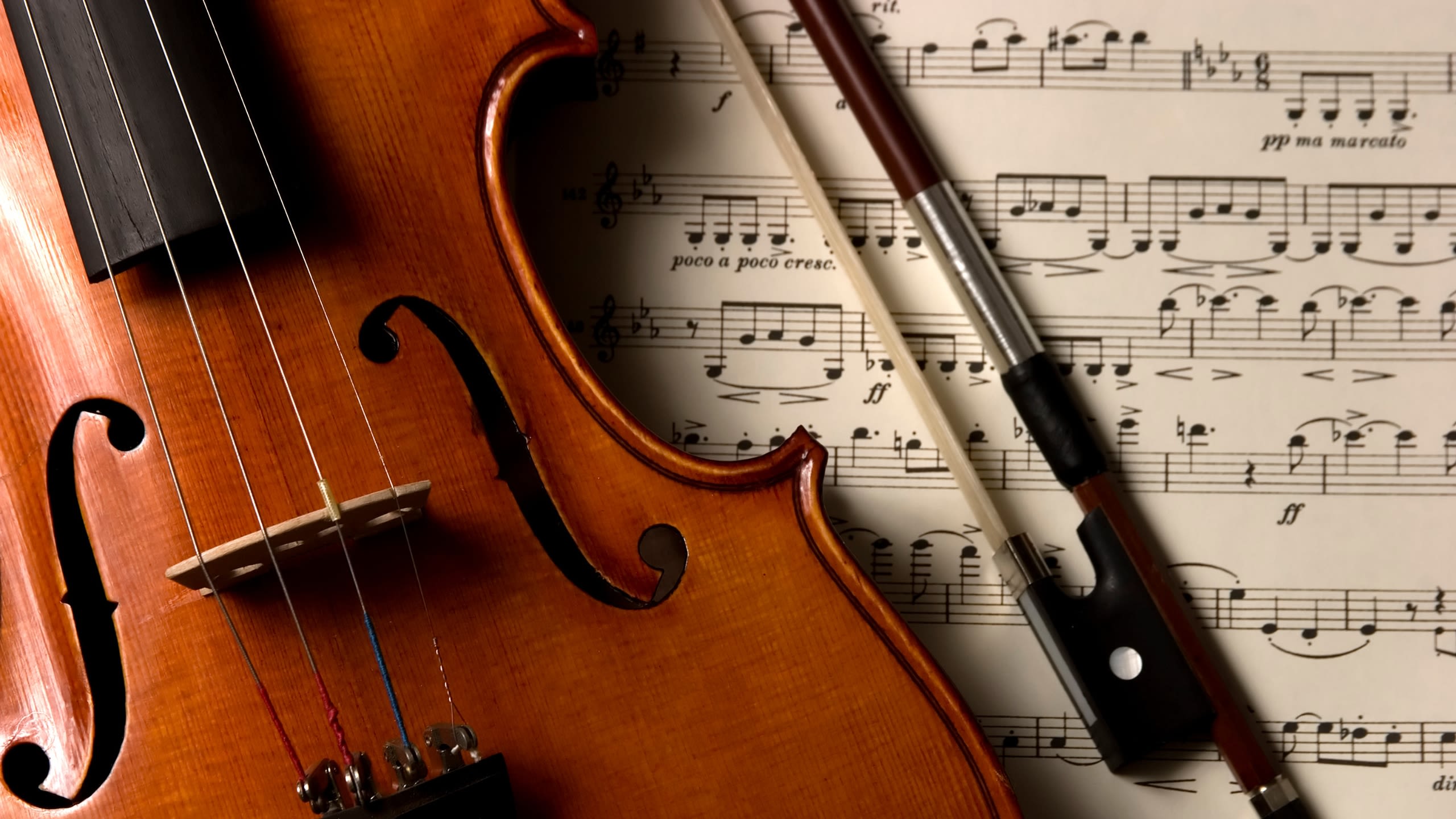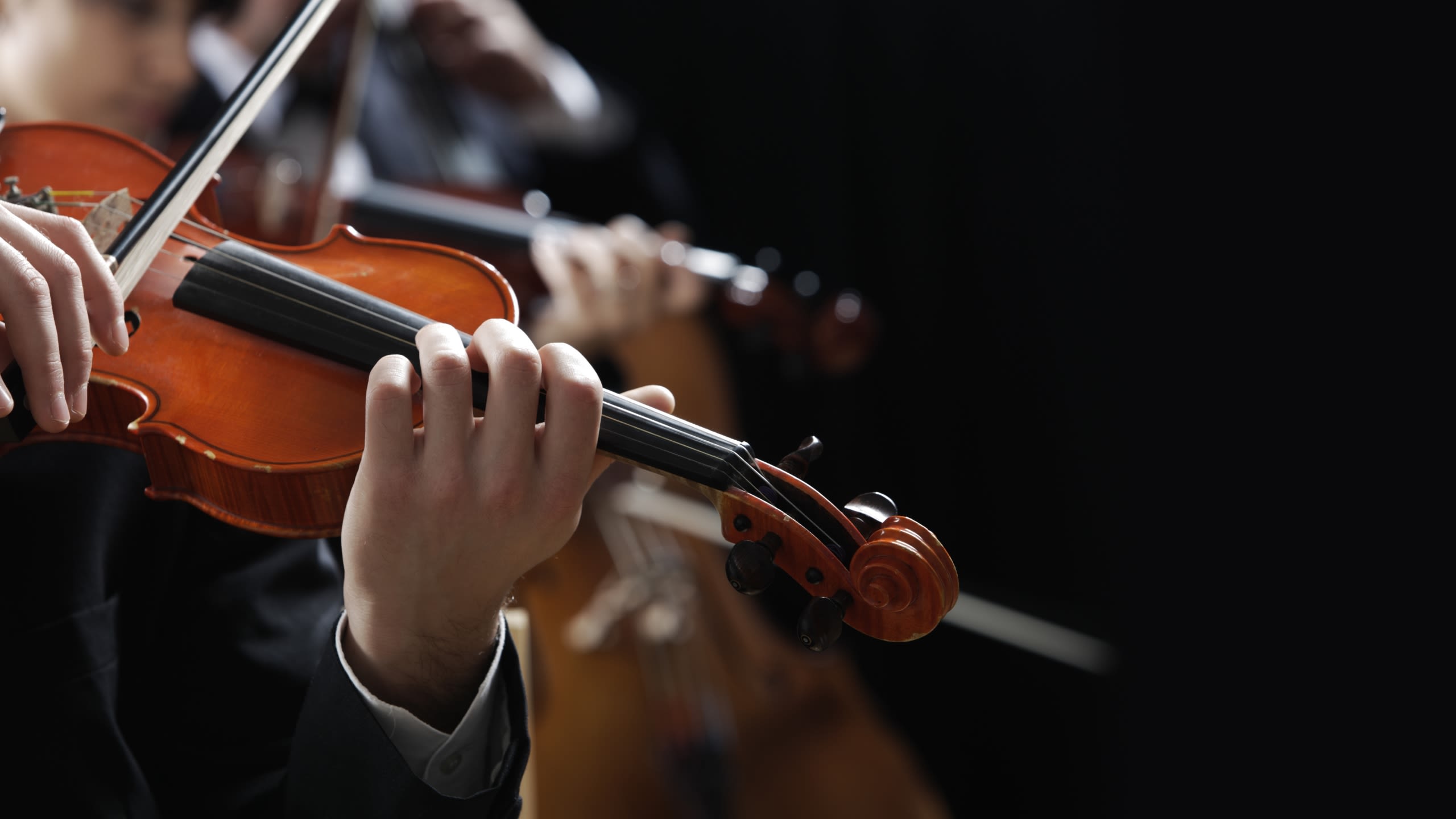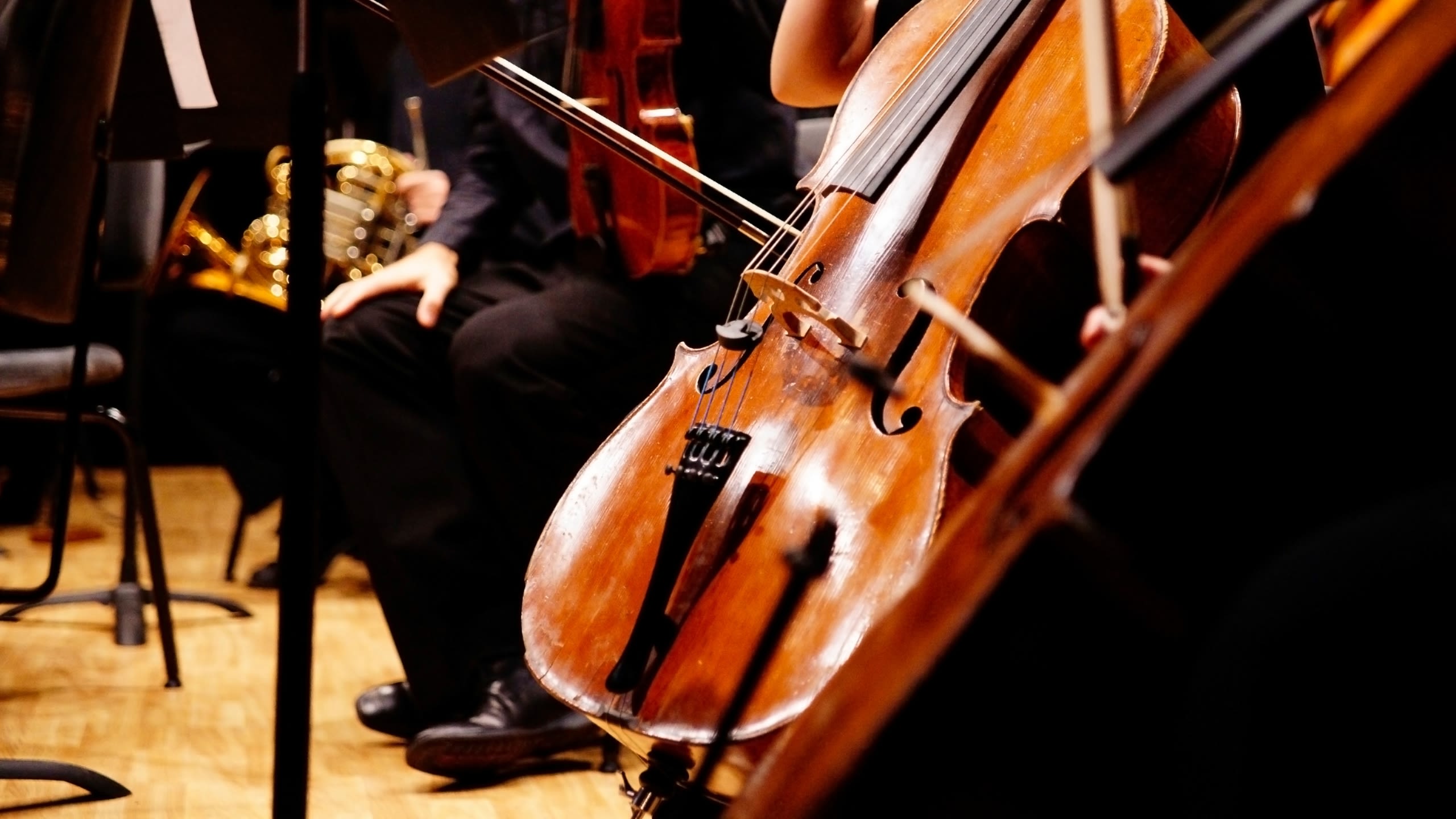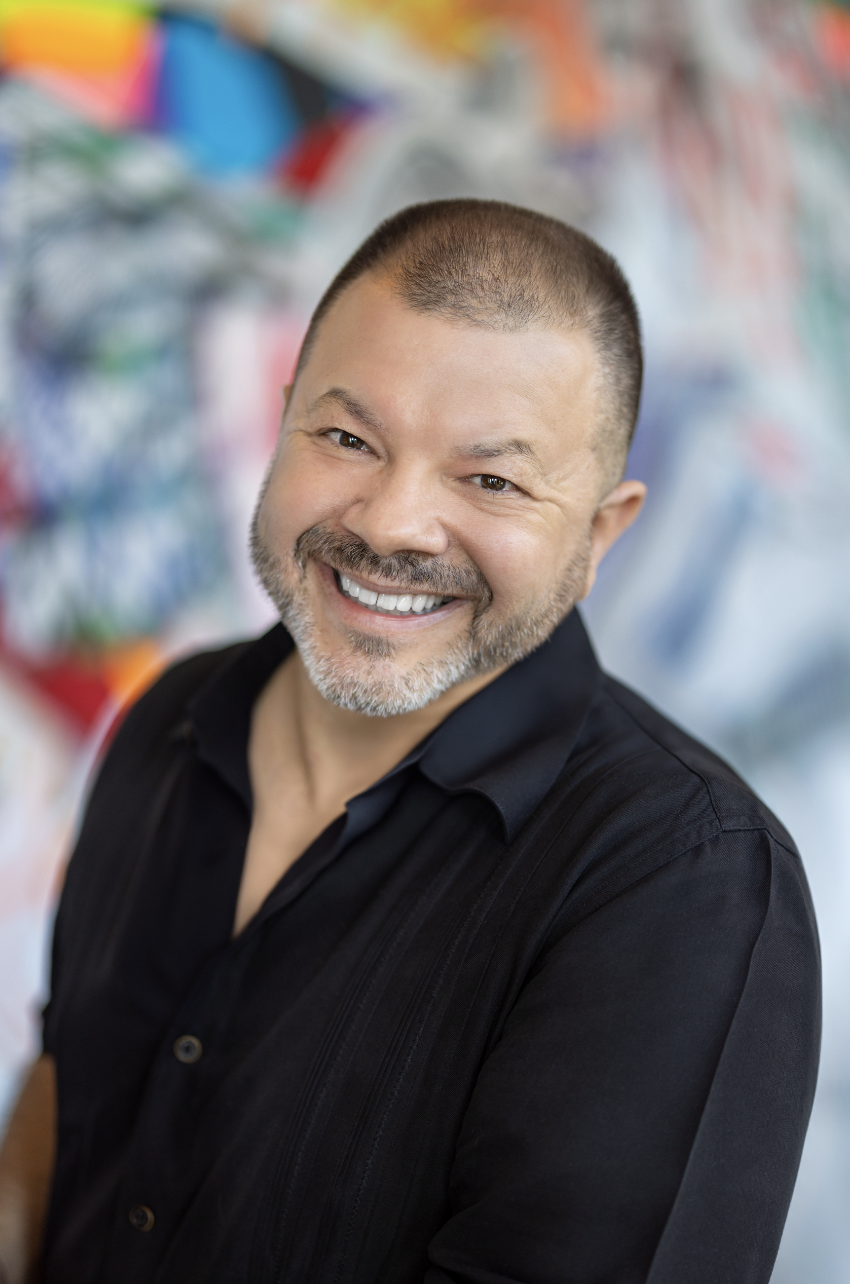ALAN AUSTIN AND THE TEXAS MUSIC FESTIVAL: A LEGACY OF MUSICAL EXCELLENCE AND LEADERSHIP
From student to director, Austin’s journey embodies the spirit and success of the Texas Music Festival.

For over three decades, the Immanuel and Helen Olshan Texas Music Festival (TMF) has brought classical music’s rising stars to Houston, offering intensive training and world-class performance opportunities to emerging artists from around the globe. Few individuals have been more integral to its success than Alan Austin, whose connection to TMF began in its inaugural season when he joined as a student. Now serving as Manager of Orchestras at the Shepherd School of Music, Alan has continued to shape the future of classical music through his leadership and vision. This year, in recognition of his extraordinary contributions, TMF will present a special concert in his honor on June 7 — a fitting tribute to a leader whose impact continues to resonate throughout the classical music community.
For Austin, TMF has always been more than a summer program — it has been a defining part of his musical journey.
Music was a constant presence in Austin’s early life. He recalls his grandmother playing piano by ear and being surrounded by music from a young age. “I was always around it, but I began taking violin lessons at 11, which is relatively late, as most people start as young as four or five,” he says. Despite the late start, he quickly developed a deep passion for the violin.
During a year-long family move to Sarasota, Florida, Austin joined a youth orchestra that helped solidify his commitment to music. Returning to his hometown of Winston-Salem, North Carolina, he auditioned for the professional Winston-Salem Symphony. To his surprise, he was invited to perform in a concert that same year and was officially hired the following year. He continued playing with the orchestra throughout high school while studying at the North Carolina School of the Arts.
After graduation, Austin considered top conservatories but ultimately chose the University of Houston to study with renowned violinist Fredell Lack. In addition to Lack, he was influenced by many extraordinary faculty members who later became his colleagues and friends. He earned both his undergraduate and graduate degrees at the Moores School of Music and went on to perform with esteemed ensembles like the Houston Ballet Orchestra, Houston Grand Opera Orchestra, and J. S. Bach Society.
Austin’s connection to the Texas Music Festival began in 1990, not as a faculty member or director, but as a student during the festival’s inaugural year. He performed in the orchestra for several concerts, an experience that sparked a lasting relationship with the program. Over the years, his role evolved—from student to chamber music coordinator, and eventually to director of TMF.
Running a program of this scale wasn’t without its challenges. Alan vividly remembers Tropical Storm Allison, which once shut down the entire city of Houston and forced TMF to relocate students to a nearby motel. “You learn that you have to stay calm, anticipate problems, but not panic when things go awry,” he reflects. Behind the scenes, he compares the experience to “having a hundred children” — managing everything from housing logistics to individual student care.
TMF 2008
TMF 2008
Under Austin’s leadership, TMF flourished with new commissions and artistic collaborations. In 2006, he commissioned a bold series of New Texas Overtures from composers Rob Smith, David Heuser, Jefferson Todd Frazier, and Scott McAllister — all premiered that summer. In 2009, TMF co-commissioned Christopher Theofanidis’s Symphony with the Atlanta Symphony Orchestra, marking another milestone.

His 12-year partnership with Horst Foerster and the Akademisches Orkester Leipzig created international performance opportunities — including sending Cynthia Woods Mitchell Competition winners to perform in the historic Gewandhaus Leipzig. TMF also produced celebrated recordings of orchestral works by Peter Lieuwen and vocal/orchestral music by Daniel Catán featuring soprano Cynthia Clayton.
There were unforgettable performances — with the TMF Orchestra backing world-class soloists like Vadym Kholodenko, Elmar Oliveira, Roberto Díaz, Abbey Simon, and many others. And for Austin personally, playing with the TMF Orchestra each year during the final concert was a deeply cherished tradition.
Some moments, though, stand out not for their grandeur, but for their meaning. “That first post-COVID season — when we finally came back together to make music again — that was incredibly emotional,” he recalls. “And honestly, every time I meet an alum and hear what they’re doing now, I feel immense pride. Knowing TMF helped shape their path — that’s what it’s all about.”
He’s seen students blossom in transformative ways. There’s Tom Siders, who entered TMF as an alternate and now plays with the Boston Symphony. Or Ernie Tovar, who overcame serious physical challenges to become fourth horn with the Philadelphia Orchestra. “They may not realize it at the time,” Austin says, “but years later, they’ll tell me: TMF changed their life.”
Alan Austin and Tom Siders
Alan Austin and Tom Siders
And it’s not just the students. “Evan Leslie, who is now leading TMF, has said this place shaped his trajectory. Many have said the same. Sometimes it takes time to realize it, but the experience stays with you.”
Evan Leslie, TMF director, as a student in 2001
Evan Leslie, TMF director, as a student in 2001
To today’s TMF community, Austin offers this advice: “Don’t panic. And try to enjoy every minute. It’s a whirlwind, and before you know it, it’s over. When good moments happen, take a breath and say, ‘Hey, I helped create this.’”

As TMF steps into a new era, Austin’s legacy endures — not only in programs and performances, but in the lives touched by music.
None of it would be possible without TMF’s dedicated supporters. “I’m incredibly grateful to people like Immanuel and Helen Olshan and the Mitchell Family Foundation, who have stood by us for years,” Austin says. “Their generosity has sustained this festival. I also want to thank Robert and Sharon Lietzow for their vision and commitment to the Piano Series. TMF continues to thrive because of the people who believe in what we’re doing, and I hope they know how deeply appreciated they are.”
Despite the whirlwind, Austin says the relationships — with faculty, students, and supporters — are what make TMF truly special. “It may change as new directors bring new ideas, but I hope it will always be a place people want to be, that makes a mark they remember for life.”
This tribute is deeply meaningful to Austin, who has spent decades shaping TMF’s mission and mentoring young musicians. “It’s a huge honor, but honestly, TMF has given me so much already,” he says. “Working with students, creating music, and building something special for the Moores School of Music — that’s been my privilege.”
Join us in celebrating Alan Austin—get concert info and tickets here.




